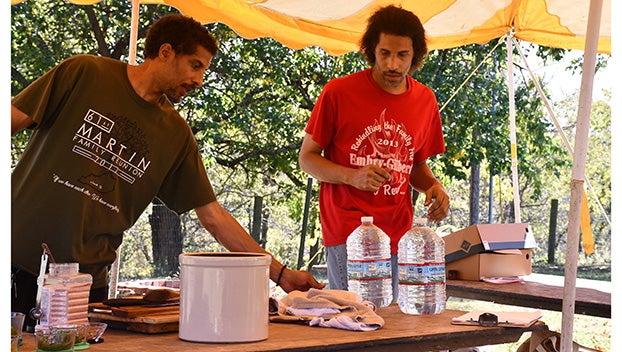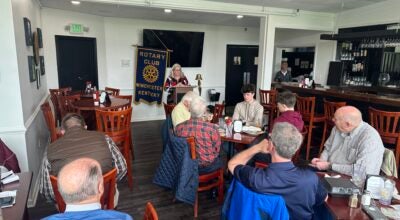Heritage Food Festival showcases climate-smart food preparation
Published 10:30 am Wednesday, October 18, 2023

- The Heritage Food Festival showcased different holistic styles of preparing food late last week and weekend. (Photo by Matt Cizek)
|
Getting your Trinity Audio player ready...
|
Those at Mt. Folly Farm always want to educate the public about effective farming practices.
Over four days last week, such an opportunity arose.
The farm located on Schollsville Road practices regenerative agriculture, offers USDA-certified organic products and recently received a USDA Climate-Smart Commodities Project Grant, hosted its first-ever Heritage Food Festival from Oct. 12-15.
“We’ve had quite a handful of people come in,” said Ben Pasley, the CEO of Mt. Folly Farm Enterprises. “We’re doing [the] Heritage Food [Festival] as part of our USDA Climate-Smart Grant…[with] slower food that is whole and is more the traditional way of how things have been made over the years.”
Pasley noted two primary approaches to climate-smart practices: the historical way things have been done, and a naturalist approach.
According to its official website, www.heritagefoodfest.com, the essentials taught during the event focus on “skills that will reconnect you to your roots and empower you to take control of your food, health, and life.”
On Friday afternoon, among several stations, attendees learned about fermentation, which can be defined as a metabolic process that produces chemical changes in organic substances when molecules such as glucose are broken down anaerobically.
Irucka Embry, an environmental engineer and food advocate, spoke to the crowd.
“Part of fermentation [is] it makes the food more digestible,” Embry said. “We’re getting the nutrients that our body needs that much faster.”
Obiora Embry, an environmental consultant and fermenter, also helped lead a discussion and had volunteers participate in an activity that explained fermentation by mixing ingredients such as mustard seeds, green amaranth, bell pepper leaves, and more.
“Fermenting is just one method of food processing”, he said.
As educational as learning about fermentation can be, it was far from the only session during the festival, where attendees learned about butchering and meat processing, wild foraging, hands-on cooking, basic and alternative cooking, traditional diets for health and more.
“We’ve got a mill house [where] we run grits and cornmeal,” noted Alice Melendez, the project lead for Climate Smart Farming. “We’re [also] going to experiment with buckwheat.”
Andrew Ozinskas, an herbalist with Natura Apothecary, was even helping make up some goat stew.
“I have raised goats for a long time, and so I’ve cooked them about every way you can come up with,” Ozinskas said. “I grow maybe 500 or 600 different native herbs and [also] make medicine [to] sell to my clients.”
For entertainment, live music from the likes of Jacob Fultz also took place.
There was much to be grateful for when all was said and done.
“I love a four-day festival. You get to camp, and you stay long enough to chill”, Melendez added.





